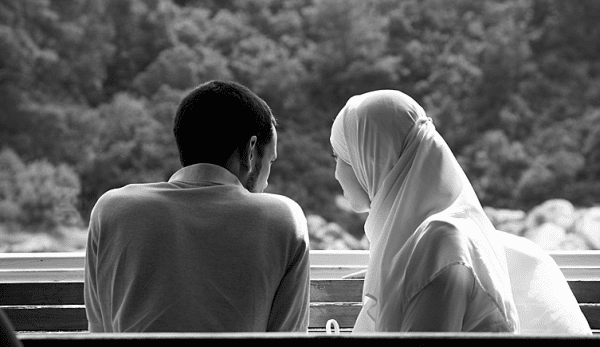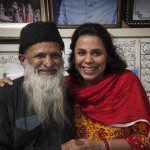
By Hadeer
Hijabi. The word stumbles about my tongue in an ungainly fashion instead of rolling off gracefully. When it escapes my mouth, it falls flat. I realize then that I hate it. This word confines me within a box, reducing who I am as a human being to a dress code I chose many years ago.
Wearing hijab has been a beautiful experience. For ten years, it has symbolized the freedom to dress as I wish, but more importantly it has reminded me of my connection to a merciful God who shows me His love through subtleties like an acquaintance saying the exact words I need to hear or a plan delayed for a reason that I later realize is a blessing. Aside from the spiritual, the hijab has also acted as a catalyst for insightful conversations with both strangers and friends—discussions about xenophobia in America, about the role of religion in public and private American life, about God, and about faith and choice.
In rooms full of people who do not dress like me, the hijab is a reminder to both myself and to those around me that Muslims are deeply woven into the fabric of this society. The hijab is my tangible, physical reminder that I am committed to God and enabled by Him in every moment, every breath of this worldly life. And finally, the hijab is a symbolic reminder that what sits inside of me matters more than what is on the outside; it is the former that determines my worth, not the latter. For those reasons, I treasure it.
But as I mark the ten-year anniversary of my wearing hijab – pairing my scarf with modest suits, dresses, sweats, and swimsuits – I realize that this hijab is eating away at my identity. My hijab has become too prominent a part of who I am, overshadowing all other aspects of me and causing people to forget to see me as an individual. Before I am my character, before I am my beliefs, before I am my personality, I am a person who wears hijab – a “hijabi.”
The hijab has become who I am, dwarfing my aspirations, my beliefs, and the person I want to become. Muslim men talk about wanting to marry or not marry a hijabi, as if a woman’s hijab was ever their choice; women in the community tell me I should have waited to wear hijab until I was older, as if it robbed me of my youth; others praise my hijab, as if it is undisputable proof of my good character; and friends fear community repercussions for removing their hijab, as if they will they be seen as weak, insincere and vacillating. Meanwhile, my agency is slipping away. What had been my personal decision has been made available for public consumption and judgment in the metaphorical town square.
What if I told you that the way I dress is not a state of being? That who I am fluctuates, and what I wear is not a sign of strengthened or weakened faith in God? Hijab is not my identity. I am a nuanced, inconsistent and evolving human being. I have a character to develop, beliefs to test, and talents to use before I define myself by my clothing. The entire purpose of dressing and behaving modestly is to transcend what is on the outside and get to work on one’s mind, soul and relationships. For now, my hijab is staying with me because of what it has done for me, but I’ve come to terms with the fact that it is not a constant.
I choose to wear hijab. But I am not a hijabi.
Hadeer is a Southern California native, a lawyer, and a lover of books. When she’s not researching women’s contributions to Islamic jurisprudence or trying out new desserts with her family and friends, she can be found contemplating life in nature. This article was originally published in Altmuslimah, which is not affiliated with Altmuslim.















